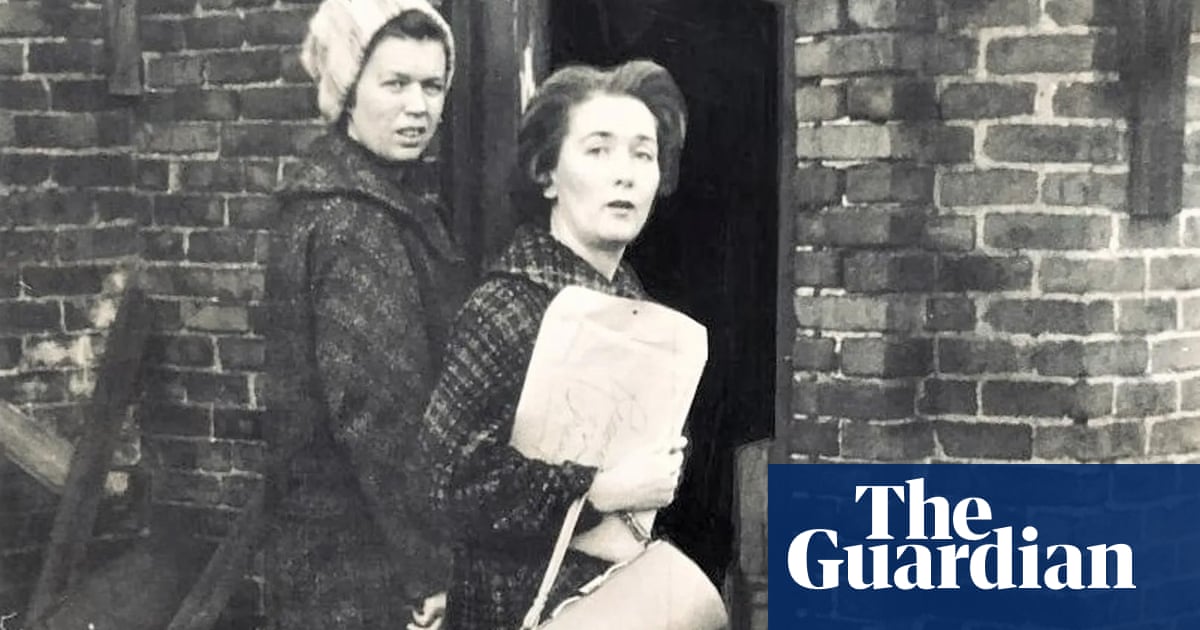
uring lockdown I envied my dad and stepmum when they described walking their dog on the cliffs around St Ives, how the sand on Porthmeor beach was white and the sea looked clear. In their late-60s, they were at greater risk from the effects of coronavirus than I was in my 30s, but while the number of cases in Cornwall remained low I wondered if they understood what my wife and I were living through in London. We were in a gardenless one-bedroom flat, between neighbours we hardly know but hear constantly, in a borough that was consistently near the top of the charts for the most Covid-19 cases in the city.
As lockdown has eased, the roles have reversed. While London feels quiet, St Ives is entering what is traditionally its busiest period. Holiday accommodation in the town is booked until October, extra campsites have been set up to cope with the overspill, and anxiety levels are rising among some locals. Last weekend, my mum said she was scared to go to the shops. She’d invited my stepsister and her partner over for a barbecue but they declined. “They said St Ives is completely out of control, and think they shouldn’t go anywhere,” said Mum.
Another relative posted pictures on Facebook that showed masses of people jammed together on Fore Street, which is narrow and cobbled. She said she overheard someone say: “I’ve come down here to relax and escape this Covid-19 stuff.”
This tallied with what my stepsister said about tourists when I called her: “They’re in holiday mode, bumping around all over the place. They think there’s no coronavirus in Cornwall. Locals are split between those who are delighted that the economy is booming and others who are putting up signs that say: ‘Fuck off, tourists.’”
After months of lockdown, it’s understandable that people want a holiday. People may be craving less urban environments, access to the sea. Many traditional tourist destinations will be facing post-lockdown increases. But people should think seriously about whether they need to go to Cornwall, which may lack the infrastructure to cope with a steep increase in cases of coronavirus. In the critical care unit of the Royal Cornwall Hospital in Truro, which sits in the middle of the county and is difficult to reach for anyone without their own transport, there is room for 15 patients. Cornwall’s population is older than the national average, with around 25% aged over 65.
I haven’t been down to visit my family in many months and yet I’m not going this summer. My family isn’t keen on having visitors at the moment and suggesting it wouldn’t feel right. My younger brother, who spent lockdown confined to his room in a London houseshare, is staying away too. When I called an old friend from Cornwall, who now lives in Oxford, she wasn’t planning to visit her family either and said: “The idea that a holiday is anyone’s priority now is pretty strange.” If we can stay away, why couldn’t the people on Fore Street?
Among well-off Brits there’s a palpable sense of entitlement about holidays, and many of those who visit St Ives are affluent. When my dad and stepmum moved into their home in the late-1980s every house on their terrace was occupied all year round. Nowadays, their neighbouring houses are second homes and expensive holiday lets – in fact, they converted half of their house into one and rely on it for their income. When the council held a referendum in 2016 on banning the sale of new builds as second homes, they thought the idea was parochial and bad for business. They have never been anti-tourist.
Recently their attitudes towards visitors have hardened, as summer has approached and the choice between losing their income and risking their health has become real. They have even been circumspect about the prospect of welcoming those second-homers they count as friends. It strikes me that coronavirus is exposing the unequal relationships that underpin tourism. But what are people like my parents to do? Cornwall’s visitor economy is estimated to be worth around £2.4bn, and with Brexit coming it arguably needs that money more than ever. Last week, Cornwall council asked the government for £700m over the next decade to fill the gap left by the end of European Union funding.
It saddens me to think of my family staying inside while the tourists indulge in a coronavirus-free fantasy, and it angers me that our reckless government is forcing people to choose between their health and livelihoods. My dad has been driving far out of town to walk his dog, but even there he meets tourists who “pay no attention whatsoever to social distancing”. His solution is to brandish his dog’s poop bags at arm’s length. As a deterrent it’s proving effective and, as a symbol, it sums up the whole show quite nicely.
• Max Liu is a freelance writer












